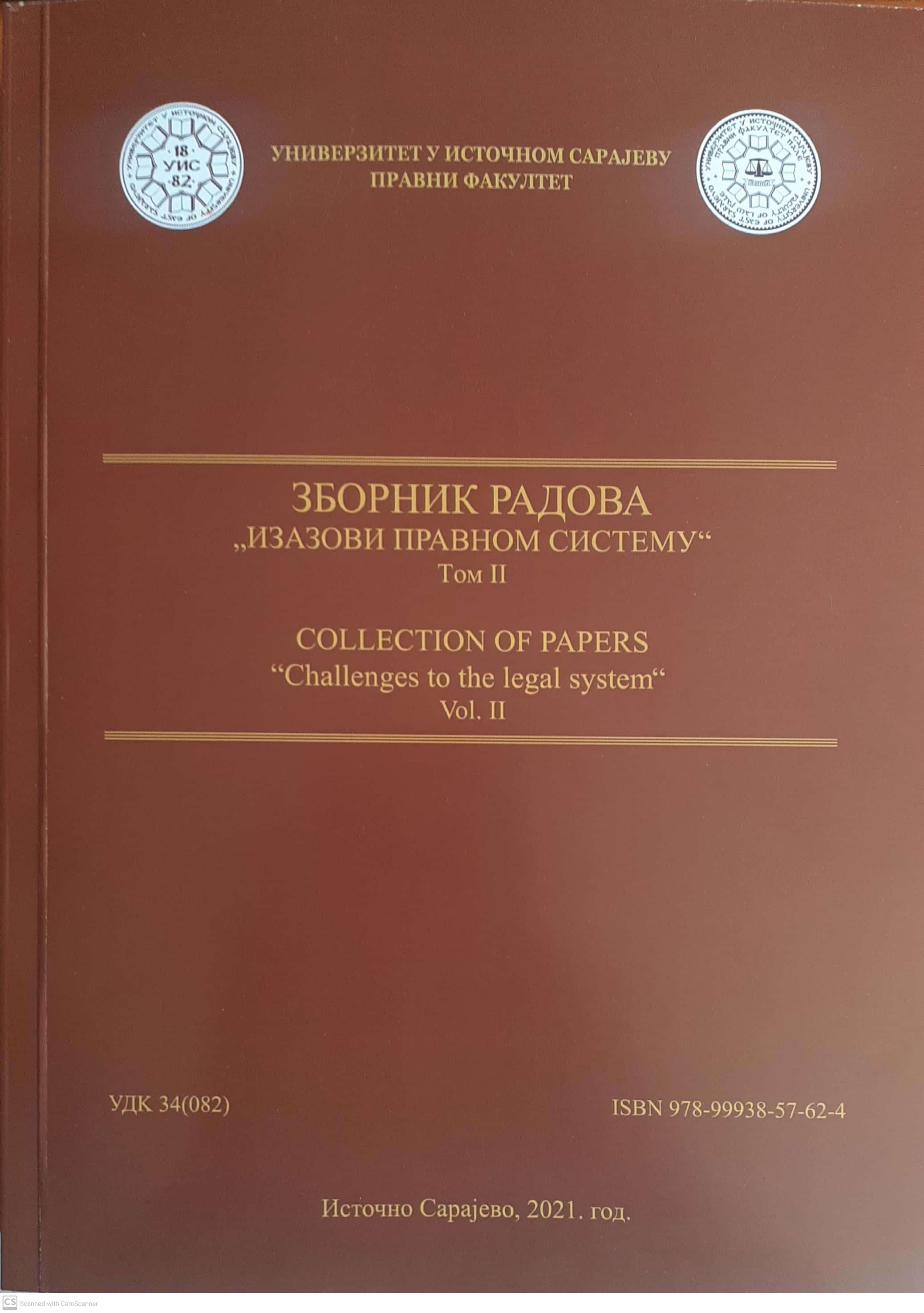Антиципарне наредбе пацијената и сродни правни системи
On Patient's Advance Directives and Related Legal Institutes
Author(s): Dragica Živojinović, Nina Planojević
Subject(s): Law, Constitution, Jurisprudence, Health and medicine and law
Published by: Правни факултет Универзитета у Источном Сарајеву
Keywords: Patient's advance directive; Autonomy; Right to self-determination; Informed consent; Continuing power attorney; Euthanasia;
Summary/Abstract: The subject of this paper is theoretical observation on the relations between patients’ advance directives and specific legal institutes with which they share the same legal grounds. The goal of this paper is to draw a clear line between them by pointing out to the characteristics they share, as well as to those which distinguish them. This is important for adequate understanding and regulation of the institute of advance directive which permeates the most delicate spheres of individual rights – the right to life and the right to dignity.In the first part of this paper, the authors briefly review the origin and development of patients’ advance directives within Europe’s legal framework pointing to the presence of terminological differences of phrases used to describe them in literature and regulations, as well as to their legal grounds. Having conducted a comparative analysis of the provisions pertaining to this matter in some European legislation (Austrian, German, British, Swiss and Italian), the authors establish the concept and identify the key characteristics of this institute.In the second part of the paper, patients’ advance directives are compared to the informed consent, continuing power of attorney and euthanasia. Having reviewed the concept, basic characteristics and purpose of aforementioned institutes, the authors conclude that there are major differences between these and the institute of patient’s advance directive. The latter is a strictly personal act, which is not the case with the informed consent that can be given via a legal representative. The patients’ advance directives are one-sided legal transactions whose effect is not contingent on anybody’s consent, while the effect of continuing power of attorney is contingent on the attorney’s consent.Their primary goal is not euthanasia, but rather empowering the patient to control his own life and medical treatment, as well as to influence the future decisions related to his medical treatment in case he loses his mental capacity. Therefore, they should not be viewed exclusively in the context of death.In their concluding remarks, the authors state that the legislators, including Serbian lawmakers, should take into consideration these differences in their attempts to reformulate the institute of patient’s advance directive.
Book: Зборник радова "Изазови правном систему" Том II
- Page Range: 168-189
- Page Count: 22
- Publication Year: 2021
- Language: Serbian
- Content File-PDF

